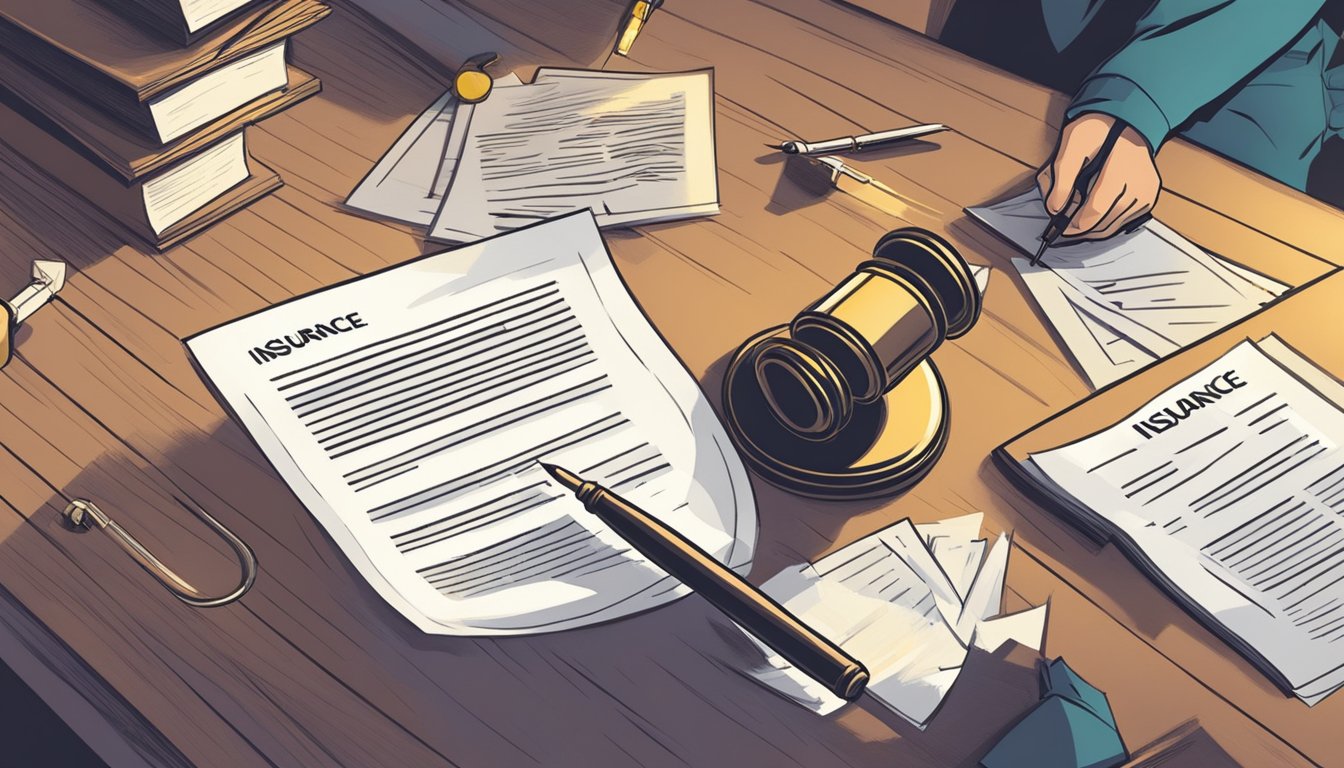Understanding Compulsory Insurance
Compulsory insurance, also known as mandatory insurance, is a type of insurance coverage required by law for individuals or businesses.
This requirement ensures that you are financially protected when engaging in certain activities.
State laws typically determine insurance regulations and the minimum coverage needed.
These regulations vary, so it is essential to understand the specific insurance law in your state.
Types of Compulsory Insurance
There are several types of compulsory insurance, which can include:
- Automobile Liability Insurance: Required to protect against legal liability in car accidents.
- Workers’ Compensation: Protects employees who get injured on the job.
- Professional Liability Insurance: Required for certain professionals like doctors and lawyers.
How Compulsory Insurance Works
When a policy is legally required, you must obtain coverage from an insurance carrier before engaging in the activity.
This ensures that you are financially responsible for potential damages or injuries.
Benefits of Compulsory Insurance
- Financial Protection: Shields you from significant financial loss.
- Legal Compliance: Helps you meet state law requirements.
- Peace of Mind: Knowing that you have coverage can relieve stress.
Challenges
Although compulsory insurance provides significant benefits, it can also come with challenges.
Navigating complex policy requirements and ensuring adequate coverage can be difficult.
It’s crucial to ensure your policy meets the necessary insurance regulations.
Understanding compulsory insurance is vital for individuals and businesses.
Knowing the types and how they protect you helps ensure you comply with legal requirements and secure financial protection.
Types of Compulsory Insurance Policies
Compulsory insurance policies are required by law and are designed to protect individuals and businesses from financial risks.
Auto Insurance: This type of coverage is mandatory for drivers.
If you own a car, you must have automobile liability insurance.
This policy helps cover costs if you cause bodily injury or property damage while driving.
Workers’ Compensation Insurance: If you own a business and have employees, you are required to have workers’ compensation insurance.
This policy helps cover medical expenses and lost wages for employees who get injured on the job.
Professional Liability Insurance: Certain professions, such as doctors and lawyers, need professional liability insurance.
This type of compulsory coverage protects you from claims of negligence or mistakes in your professional services.
Personal Injury Protection (PIP): In some states, drivers must have personal injury protection.
This policy covers medical expenses and lost income for you and your passengers following an accident, regardless of who is at fault.
Automobile Liability Insurance: This specific coverage helps protect you against financial losses from accidents.
It’s a core part of auto insurance policies, ensuring that you can compensate others if you cause an accident.
Flood Insurance: For properties in flood-prone areas, flood insurance can be mandatory.
This policy covers damage to your property from flooding, which is not typically included in standard property insurance.
In each case, the premiums and coverage limits may vary based on state regulations and specific circumstances.
You must follow your local laws to ensure compliance and adequate protection.
Compulsory Insurance Compliance and Penalties

Compliance with compulsory insurance laws is crucial.
Failing to meet the requirements can result in severe penalties.
These regulations help protect you from financial ruin and ensure you can cover legal liability if needed.
State Level Laws: Each state has its own compulsory insurance laws.
For instance, automobile liability insurance is often mandatory.
States enforce these rules through electronic verification of insurance policies.
Penalties for Non-Compliance: If you don’t have the required insurance, you may face penalties such as:
- Fines
- License Suspension
- Additional Fees for Reinstatement
Repeated offenses can increase these penalties significantly.
Impact on Individuals and Businesses: Without compulsory insurance, you risk severe financial losses if you’re involved in an at-fault accident.
For businesses, non-compliance can lead to lawsuits and financial instability.
Insurance Professionals and Companies: Insurance professionals can help you navigate these laws and ensure compliance.
Companies may offer discounts for continuous coverage and punish those who let policies lapse.
Legal Liabilities: Minimum coverage limits are set to ensure you can cover damages in case of accidents.
Exceeding these limits can leave you personally liable for any additional costs.
Maintaining compliance helps you avoid legal troubles and protect your finances.
Being proactive with your coverage can save you from future hassles.






